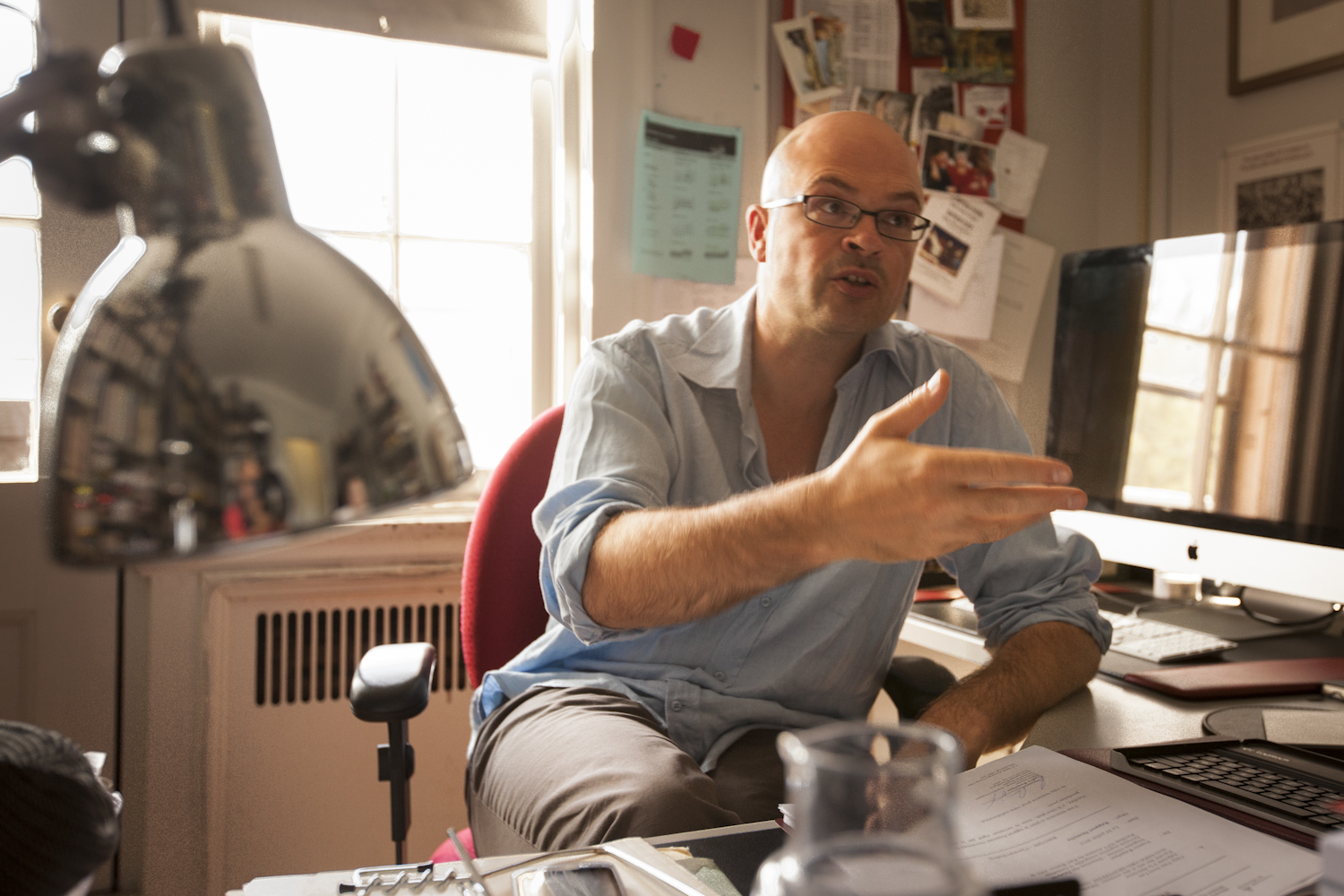On the eve of the Quebec election, rabble.ca is proud to showcase profiles of nine individuals amongst the hundreds of thousands who have proudly worn the red square of solidarity with the historic Quebec student strike.
Contrary to the wishes of Quebec’s establishment, tomorrow’s vote, regardless of the result, will not mark the end of what has come to be known as the Maple Spring. The impact and the inspiration provided by Quebec’s carrés rouges, which has spread all across Canada and even around the world, will long outlast Jean Charest.
Journalists Jane Gatensby and Nicolas Quiazua compiled these profiles over several weeks this summer. We will feature them throughout today and tomorrow, Labour Day and Election Day in Quebec.
*
Christian Nadeau on ‘a period of intellectual effervescence’
On the shelves that line the walls of Christian Nadeau’s office, books are stacked two rows deep. A thick volume entitled Néo-liberalisme(s) rests close at hand. Nadeau, a philosophy professor at Université de Montréal, supports his students’ decision to fight the hikes. “It’s a movement that concerns us,” he says.
“I always thought that if the movement was visible, it was first and foremost because we wanted even bigger things […] we saw in the student movement a resistance to the selling-off of our public institutions, and we felt that if the students were successful on their issue, the rest would follow.”
In May, Nadeau voiced his support for the student movement with Un grand tonnerre, an open letter that circulated widely on social networks. He calls the spring’s strike “a period of intellectual effervescence.”
“Many, many debates were held [at U de M], on tuition hikes […] on what a university is, on the meaning of disobedience […] each with up to two hundred participants. It was very interesting to see the point to which students were motivated to participate, even those who in class would have trouble speaking up out of shyness, there, they were at ease.”
Nadeau calls the students’ victories “considerable,” citing modifications made to the loans and bursaries system as well as the simple fact that the strikes have gone on so long. He is also pleased that the movement brought left-right issues, usually relegated to second place by the Quebec sovereignty debate, to the forefront. “It’s an important political change […]an enormous gain,” he says.
He wishes, however, that the debate in the electoral arena could live up to that of his students. “At this moment in the campaign, it’s as though they must not express any ideas!” he scoffs.
“When my students tell me that they no longer have confidence in the act of voting […] I’m resolutely opposed to that way of seeing things, but I understand why they say it,” he adds.
Because of the uncertainty caused by elections, Nadeau is, at the time of our interview, doubtful that a prolongation of the strike is the best way forward for the movement.
“At a time when there can be no framework for negotiation, I don’t exactly see how the strike’s impact can be measured,” he explains.
Nadeau makes it clear to us that he is not giving advice to students, but simply expressing his personal opinion. He is favourable to the option of a suspension for the duration of the elections, but admits that “if they suspend the strike, you can just as well say it’s over.”
“I don’t see any optimal scenarios. The worst would be that the strike starts up again, the Liberals are re-elected and that not only the winter semester is lost but the fall semester too. Here [at U de M] we have no room for compromise, it would only take three days of strike and the semester would have to be cancelled.” He says that his “small hope” is that the Liberals will lose.
“I’m very pessimistic for what’s to come. But that’s never kept me from action. What else is there?”
*
Jane Gatensby is a news reporter for The McGill Daily and a contributor to Ceasefire Magazine. Nicolas Quiazua is Editor-in-Chief at Le Délit.
The interview for this profile was conducted in French and translated by Jane Gatensby.
Photo by Nicolas Quiazua.



